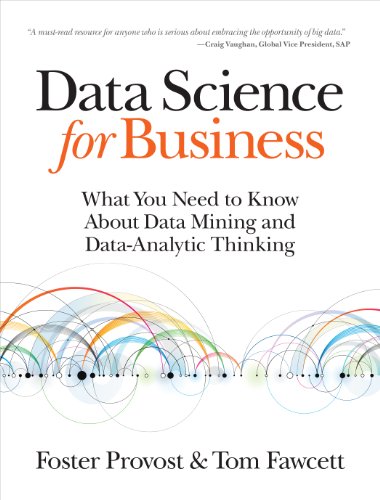7 Best-Selling Data Analysis Books Millions Love
Explore Data Analysis books endorsed by Kirk Borne, Adam Gabriel Top Influencer, and Ed Jaynes—all best-selling and widely acclaimed.


When millions of readers and top experts agree on a collection of books, you know these titles hold real value. Data Analysis remains a cornerstone skill for professionals across industries, and these widely read books distill proven methods that have helped countless practitioners navigate complex datasets and draw insightful conclusions. Whether you’re deciphering business metrics or applying statistical models, these books offer trusted frameworks that stand the test of time.
Experts like Kirk Borne, Principal Data Scientist at Booz Allen and astrophysicist, champion books that bridge theory and practical business use, while Adam Gabriel Top Influencer, an AI expert and machine learning engineer, highlights titles that advance data literacy. Meanwhile, Ed Jaynes, a mathematical physicist and Bayesian advocate, endorses works that clarify probabilistic approaches. Their recommendations reflect deep engagement with data analysis challenges and have influenced many readers to embrace these resources.
While these popular books provide proven frameworks, readers seeking content tailored to their specific Data Analysis needs might consider creating a personalized Data Analysis book that combines these validated approaches. This option offers a custom fit for your background, skill level, and goals, enhancing your learning journey with expert-validated insights.
Recommended by Ed Jaynes
Mathematical physicist and Bayesian advocate
“This small (less than 200 pages) but much-needed book contains a wealth of worked-out numerical examples of Bayesian treatments of data, expounded from a theoretical standpoint identical to ours. It should be considered an adjunct to the present work, supplying a great deal of practical advice for the beginner, at an elementary level that will be grasped readily by every science or engineering student.” (from Amazon)
by Devinderjit Sivia, John Skilling··You?
by Devinderjit Sivia, John Skilling··You?
What happens when a seasoned physicist with deep expertise in Bayesian probability teams up with a numerical methods expert? Devinderjit Sivia and John Skilling deliver a focused tutorial that unpacks Bayesian data analysis with clarity and precision. You'll explore topics like parameter estimation, image processing, and experimental design, with practical examples illuminating core concepts such as maximum likelihood and nested sampling. The new chapter on least-squares extensions tackles real challenges like outliers and correlated noise, making it especially useful for those grappling with imperfect data. If you’re a science or engineering student eager to grasp Bayesian methods beyond theory, this book guides you through the essentials without unnecessary complexity.
Recommended by Kirk Borne
Principal Data Scientist at Booz Allen
“Great book for Business Analytics and for building analytic thinking. Data Science for Business — What You Need to Know about Data Mining and Data-Analytic Thinking.” (from X)
by Foster Provost, Tom Fawcett··You?
by Foster Provost, Tom Fawcett··You?
What happens when two leading data science experts combine academic rigor with practical business insight? Foster Provost and Tom Fawcett draw on years of teaching MBA students at NYU Stern to reveal how to think data-analytically and apply data mining techniques to real business challenges. You’ll learn how to treat data as a strategic asset, communicate effectively with data scientists, and evaluate data science projects within your organization. For example, the authors break down the data-mining process in a way that clarifies how to gather quality data and extract actionable knowledge, making it easier to support decision-making. This book is ideal if you're involved in business analytics or want to bridge the gap between technical teams and business stakeholders.
by TailoredRead AI·
This personalized AI book explores battle-tested data analysis methods tailored to your unique challenges and goals. It examines proven techniques that millions of readers have found valuable, synthesizing popular knowledge with your specific interests. The content focuses on practical approaches to interpreting complex datasets and drawing reliable conclusions while matching your background and skill level. It reveals insights into data preparation, statistical evaluation, model selection, and validation, making your learning efficient and directly relevant. This tailored book fosters a deeper understanding of essential data analysis concepts and empowers you to apply them confidently in your own projects.
While working as a quantitative analyst, Wes McKinney grew frustrated with the limitations of existing data analysis tools, prompting him to develop pandas and share his expertise through this book. You learn how to effectively manipulate, clean, and visualize data using Python libraries like pandas, NumPy, and Jupyter, with detailed case studies illustrating practical applications such as time series analysis and dataset reshaping. This book suits both analysts new to Python and Python programmers venturing into data science, providing you with a solid foundation to handle real-world data problems. Chapters on groupby operations and data merging offer concrete skills you can immediately apply.
by Michael Milton·You?
What started as a challenge to make data analysis accessible evolved into Michael Milton's Head First Data Analysis, a book that breaks down complex concepts into understandable lessons. You learn to sift through vast data sets, identify significant patterns, and translate those insights into decisions with confidence. The book uniquely blends statistics with practical business applications, like designing experiments and predicting outcomes, making it especially useful if you work in marketing, product development, or any data-driven role. Its visual, engaging style helps you grasp nuanced ideas — for example, how to separate noise from meaningful signals or how to segment markets effectively — so you can communicate your findings clearly and persuasively.
by Andrew Gelman, Jennifer Hill··You?
by Andrew Gelman, Jennifer Hill··You?
When Andrew Gelman and Jennifer Hill ventured into this book, they set out to bridge the gap between complex statistical theory and practical application in data analysis. You learn to navigate linear and nonlinear regression, plus multilevel models, with clarity, backed by real-world data examples and software guidance. The chapters on causal inference and missing-data imputation stand out, offering hands-on insights you can apply directly in research or policy analysis. This book suits those who want to deepen their statistical modeling skills beyond basics, especially applied researchers and analysts seeking robust, nuanced approaches.
by TailoredRead AI·
by TailoredRead AI·
This tailored book explores data analysis with a focus on accelerating your learning through clear, step-by-step guidance. It covers key concepts such as data preparation, visualization, statistical testing, and interpretation, all matched to your background and interests. The book examines essential techniques and tools that help you translate raw data into meaningful insights, emphasizing rapid skill development. By combining proven knowledge with a personalized approach, it addresses your specific goals and learning pace, making complex topics accessible and engaging. With its tailored structure, this book reveals how to efficiently build competence in data analysis, focusing on practical application and understanding. It encourages you to explore data-driven decision-making and enhances your confidence in working with diverse datasets.
by J. Scott Long·You?
by J. Scott Long·You?
J. Scott Long's decades of experience with statistical software shines through in this practical guide focused on streamlining data analysis workflows using Stata. You learn how to design efficient processes for managing projects alone or within teams, covering planning, organizing, and documenting your work in a way that reduces errors and saves time. The book delves into writing and debugging do-files, handling macros, and adopting conventions that simplify complex tasks. It’s particularly useful if you want to improve your productivity and consistency in data handling, whether cleaning, analyzing, or protecting datasets. If you're new to Stata or looking to tighten your workflow, this book offers clear, methodical guidance without unnecessary jargon.
by Andrew Park··You?
When Andrew Park first realized how overwhelming data science concepts can be for beginners, he crafted this book to demystify the field using Python as a practical tool. You’ll learn not only Python programming fundamentals but also how to apply data analysis techniques and machine learning models with clear examples, like mastering libraries such as Matplotlib for visualization and implementing regression algorithms. This book is suited for anyone starting from scratch who wants a structured path into data science without getting lost in theory. Those with prior coding experience might find parts basic, but it’s a solid foundation for building real skills in Python-driven data science.
Proven Data Analysis Methods, Personalized ✨
Get expert-backed techniques tailored to your unique data challenges and goals.
Validated by top experts and thousands of data professionals
Conclusion
This selection of seven best-selling Data Analysis books reveals some clear themes: practical application balanced with solid theoretical foundations, expert endorsements matched by widespread reader trust, and a broad range of topics—from Bayesian methods and regression modeling to business analytics and Python data wrangling. If you prefer proven methods with actionable strategies, start with Data Science for Business and Python for Data Analysis. For validated statistical approaches, combine Data Analysis Using Regression and Multilevel/Hierarchical Models with Data Analysis by Sivia and Skilling.
For those looking to improve workflow efficiency, The Workflow of Data Analysis Using Stata offers structured guidance. Beginners will benefit from Data Science for Beginners and Head First Data Analysis, which provide accessible entry points. Alternatively, you can create a personalized Data Analysis book to combine proven methods with your unique needs.
These widely-adopted approaches have helped many readers succeed, guiding you through the multifaceted field of Data Analysis with clarity and confidence.
Frequently Asked Questions
I'm overwhelmed by choice – which book should I start with?
Start with Data Science for Beginners if you're new to data analysis. It's structured to build foundational skills in Python and data concepts before moving to advanced topics.
Are these books too advanced for someone new to Data Analysis?
Not all. Titles like Head First Data Analysis and Data Science for Beginners are designed for newcomers, while others like Gelman's regression book suit more experienced readers.
What's the best order to read these books?
Begin with introductory books such as Data Science for Beginners and Head First Data Analysis. Then move to domain-specific or advanced books like Data Analysis Using Regression and Multilevel/Hierarchical Models.
Should I start with the newest book or a classic?
Focus on relevance and your goals. For practical Python skills, the recent Python for Data Analysis is invaluable, while classics like Data Analysis by Sivia remain foundational for Bayesian methods.
Do these books assume I already have experience in Data Analysis?
Some do, like Data Analysis Using Regression and Multilevel/Hierarchical Models, which targets readers with statistical background. Others, like Data Science for Beginners, start from scratch.
Can I get tailored insights combining these books?
Yes! While these expert books provide strong foundations, you can create a personalized Data Analysis book that blends popular methods with your specific learning goals and background for a customized experience.
📚 Love this book list?
Help fellow book lovers discover great books, share this curated list with others!
Related Articles You May Like
Explore more curated book recommendations






